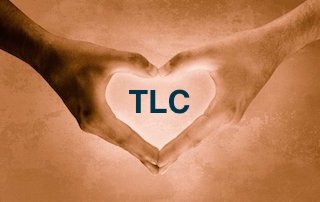Sweets for Your Sweetie
By Dr. Carol Ann
Fischer, D.C., N.D.
Valentines Day is the one day
that we give something sweet to someone we care about. Show your affection by
giving the gift of sweets with real ingredients. There are many different types
of sweeteners available today, from natural to man-made synthetics.
Man-made sugars are causing
health issues and creating hidden food allergies. The three most common food
allergens are wheat/gluten, dairy and corn. Many digestive issues, migraines
and headaches, brain fog, aches and pains, chronic sinus congestion and
asthma/allergies are related to hidden food allergies.
Most processed foods now contain
some form of sweetener. Of the three food allergens, corn is the only food that
is used to make sweeteners. For those with corn sensitivities, eating sweets
made from corn can be the cause of many unwanted health issues.
Corn is used
to make sweeteners because it is cheaper and twice as sweet as table sugar. It
is absorbed only 40% as quickly as glucose and causes only a modest rise in
blood sugar. Corn has been altered to make high fructose corn syrup
(HFCS), sorbitol, xylitol, fructose, sweet & low, sucrose, maltodextrin,
poly dextrose, inosital, and saccharin. The average person today consumes 60 pounds of HFCS, which is
approximately 19% of the average person's diet.
This man-made HFCS has replaced sugar as the
sweetener in many beverages, candy and foods such as breads, cereals, breakfast
bars, luncheon meats, yogurts, soups and condiments. In 2009 The Wall Street Journal reported that half of the tested
samples of HFCS also contained mercury. Mercury is the most toxic substance
known to man, and it is now combined with HFCS.
HFCS with
mercury were found in nearly a third of 55 popular brand name food and beverage
products. HFCS is now the first or second highest labeled ingredient. HFCS
alters body chemistry by causing the growth of fat cells around vital organs,
setting the stage for heart disease, obesity, and diabetes. HFCS interacts with oral contraceptives
and elevates insulin levels in women on "the pill,” setting them up for
diabetes. It also raises serum triglycerides significantly and LDL cholesterol
levels. HFCS has no enzymes, vitamins, or minerals and robs the body of its
micronutrients in order to metabolize it.
Sucralose or Splenda is another
man-made sugar substitute that is high in chlorine. Splenda is made by binding three chlorine atoms to a
molecule of sugar. When the body attempts to metabolize this chemical sugar it
makes dioxin, a cancer causing chemical that can trigger fatigue, headaches,
dizziness, brain fog, nausea, depression, digestive issues and joint pain.
Seventy
percent of American women consume Sucralose daily. Sucralose is found in nearly
4,000 food, beverage and health-care products, including diet drinks, ice
cream, protein bars, salad dressings, over the counter drugs, chewing gum, vitamins
and toothpaste
Another man-made sweetener is Aspartame, commonly known as Nutra-sweet
or Equal. Aspartame is
now present in 6,000 products and used in over 90 countries. It is even
registered with MSG, an aspirin derivative and Mercury Thiomerosal by the FDA
for use in vaccines.
Nutra-sweet is manufactured in North America in Aiken, South
Carolina in a genetic engineered GMO bacterial factory. The parent company is
Monsanto, maker of the popular weed killer, Round-UpÒ. Aspartame consumption
through diet pop has recently been linked to MS, Systemic Lupus and
Fibromyalgia.
When aspartame is consumed it breaks down into these
neurotoxic substances: Methanol (wood alcohol), Formaldehyde (embalming fluid,
also found in commercial cosmetics), Formic Acid, (ant sting venom) and DKP (a
known brain tumor agent). All of the man-made sugars HFCS, Nutra-sweet and
Splenda, along with mercury can accumulate in the body and cause toxicity
reactions.
Show your sweetie how much you
really care by giving real sweets this Valentines Day. Look for Valentine
sweets that are not made from corn with high fructose corn syrup or vanillin
flavoring (artificial vanilla), or artificial sweeteners. Good sweets have real
flavorings, real sugar and real ingredients. Most of the better Valentine
sweets are available in local health food stores and specialty shops.
Disclaimer: The recommendations in this
article are not to be taken as medical advice. If your diet or health is not
what it should be, consult a qualified wellness consultant to evaluate toxicity
levels, determine the cause of your health issues, and for specific
recommendations. In Livonia, MI, TLC Holistic Wellness has doctors that are trained to evaluate your sugar handling ability and your toxicity levels from man-made sugars. Call (734) 664 - 0339 to schedule a no-charge consultation today.

No comments:
Post a Comment